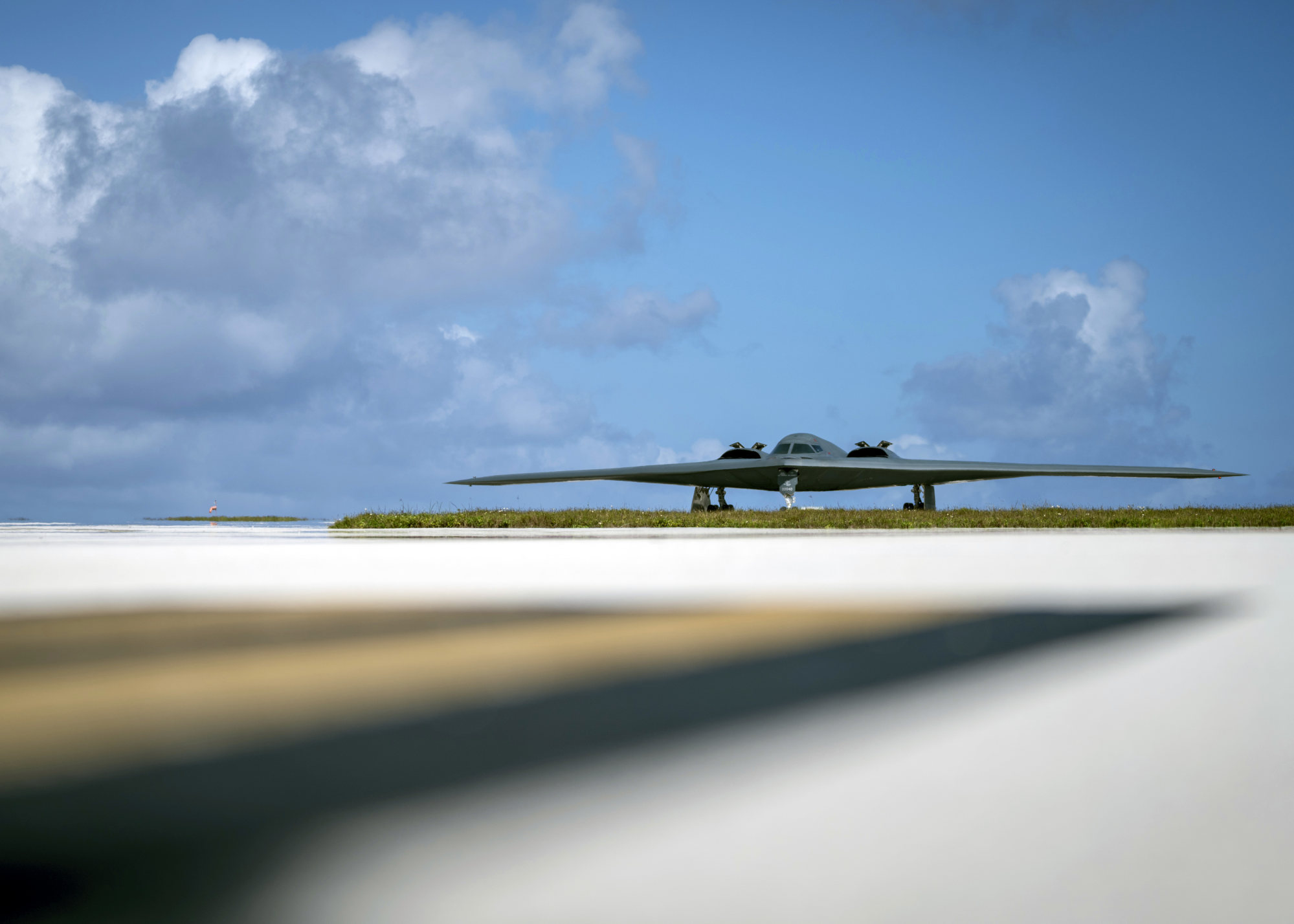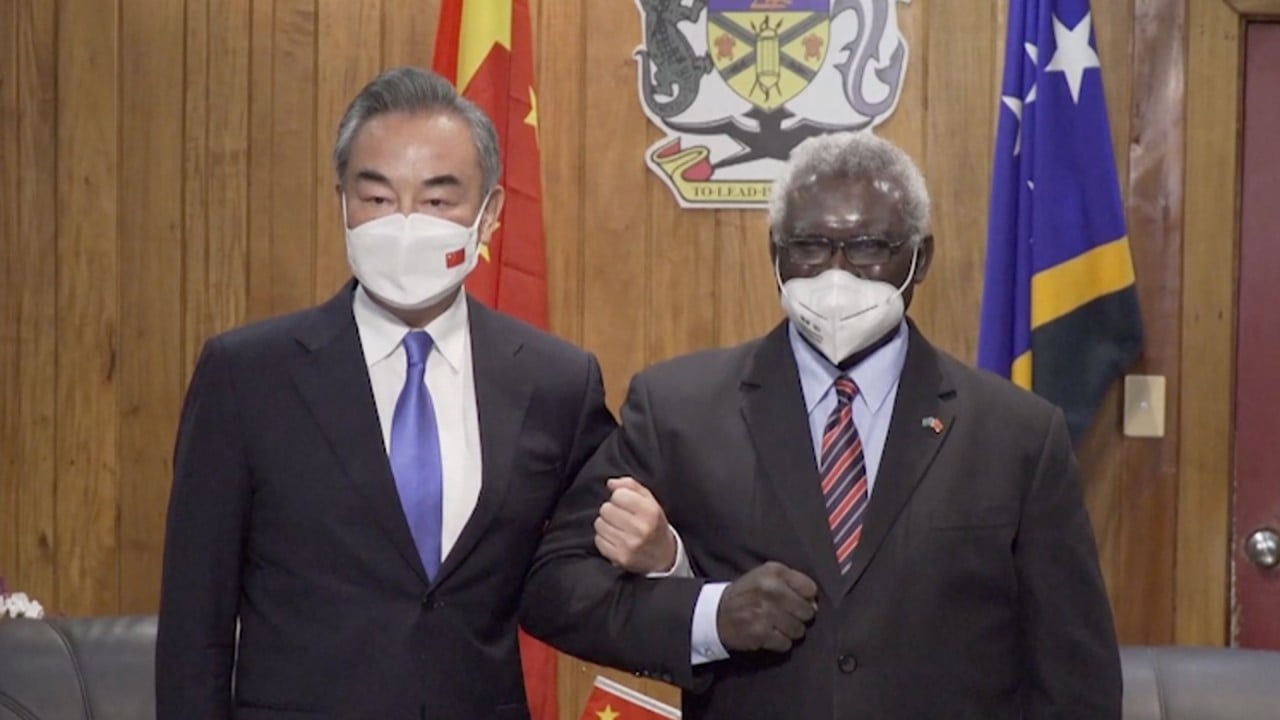“Every day it is not approved plays into the hands of the CCP and the leaders here … who want to accept its seemingly attractive economic offers at the cost of shifting alliances, beginning with sacrificing Taiwan,” he wrote.
“The PRC has already offered to ‘fill every hotel room’ in our tourism-based private sector – ‘and more if more are built’ – and US$20 million a year for two acres for a call centre,” he wrote, using the abbreviation for the People’s Republic of China.
Chinese police work in Kiribati as Beijing widens Pacific ties to counter US
Chinese police work in Kiribati as Beijing widens Pacific ties to counter US
“We understand the past several months have been frustrating for, and uncertain for our friends in the Pacific,” said Taylor Ruggles, the State Department’s senior adviser for the implementation of the pact through which funds are allocated, known as the Compact of Free Association.
“We’ve heard their concerns about getting it done, and frankly we shared those frustrations.”
He said it was a sign of the COFA agreement’s importance that it was passed while other national security priorities are still stalled in Congress.
“This relationship really supports the security, stability, freedom and prosperity throughout the Indo-Pacific,” Ruggles said.
Under the COFA agreement, citizens of the three nations have the right to live and work in the US among other benefits, while the US provides for their postal service, national defence and uses their territory – a maritime area larger than the continental United States – for military installations and exercises.
The first COFA agreement was signed with the US in the 1980s, and it has already been renewed once.
US Senate passes funds for Pacific island nations after congressional delays
US Senate passes funds for Pacific island nations after congressional delays
‘Strong ties between the United States and the Pacific islands form the foundation of our engagement and presence in the Pacific,” said Interior Department official Keone Nakoa in a call from Washington with reporters.
“The provision of 20 years of new economic assistance sends a clear signal of the United States’ commitment to the long, historic relationships we have held with the associated states.”
The Freely Associated States have a combined population of less than 200,000 spread across more than 1,000 islands and atolls, about 4,000km (2,500 miles) southwest of Hawaii.

In addition to Guam, the states give the US military a forward presence in the Pacific, including a missile test facility in the Marshall Islands and a high-frequency radar system being built in Palau.
The countries have had strong ties to the US since American forces liberated them from Imperial Japan in World War II, but China has been working hard to try and win influence, and also convince Palau and the Marshall Islands, which still recognise Taiwan, to change loyalties.
In February, the presidents of the three countries warned American congressional leaders that the delays in the COFA renewal had “generated uncertainty among our peoples” and created “undesirable opportunities for economic exploitation by competitive political actors active in the Pacific.”
‘No role’ for China in policing Pacific islands, Australian minister says
‘No role’ for China in policing Pacific islands, Australian minister says
The ties between the Freely Associated States and the US, however, are much deeper than strictly financial, Ruggles said.
“We have a really unique and special relationship with the Freely Associated States, arguably one of the closest relationships possible between sovereign nations,” he said.
“Their citizens serve in the US military, they can travel and work freely in the United States, our military provides for the national defence – we’re as close as countries can be and this has been a long-standing relationship.”


